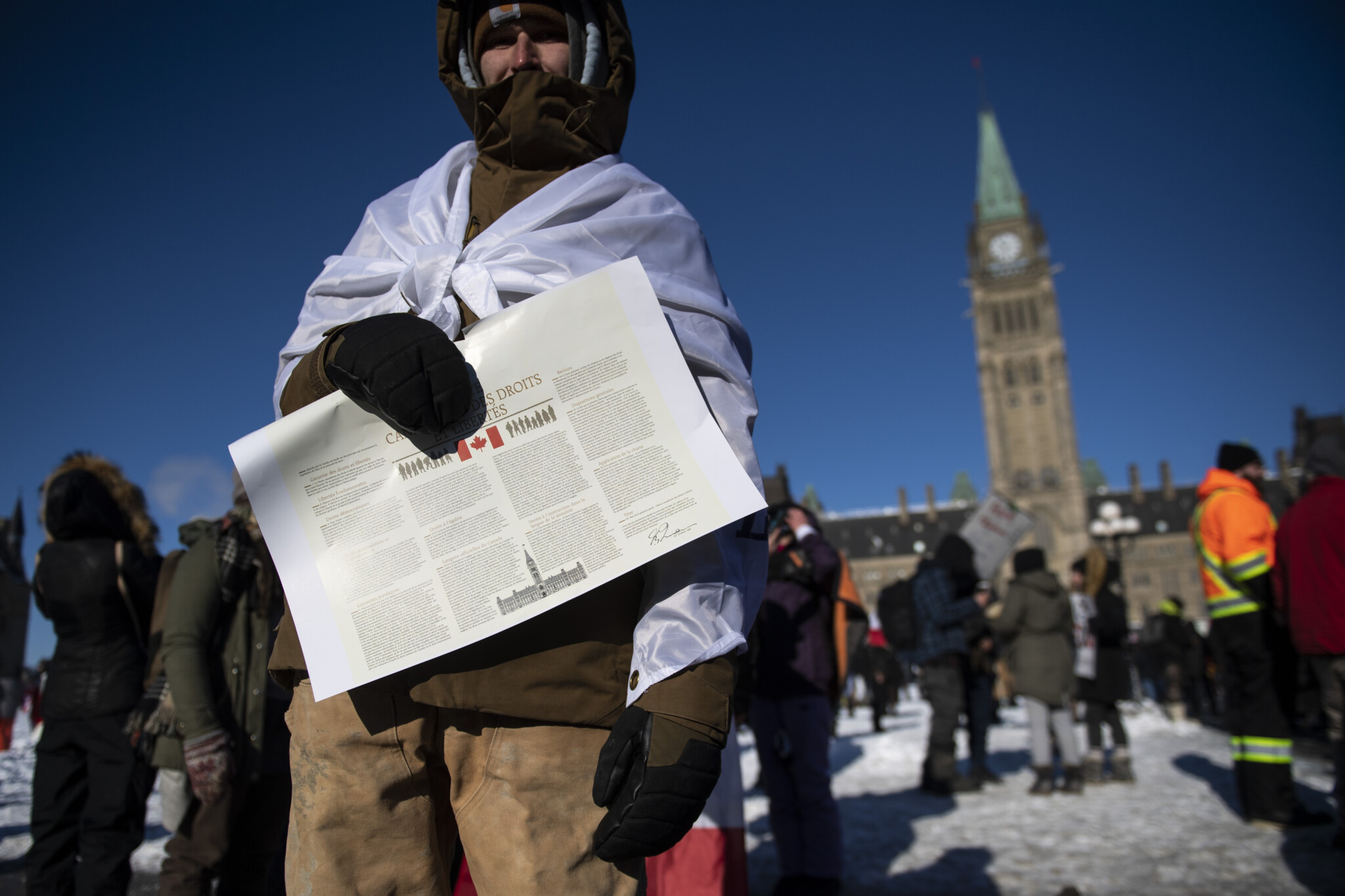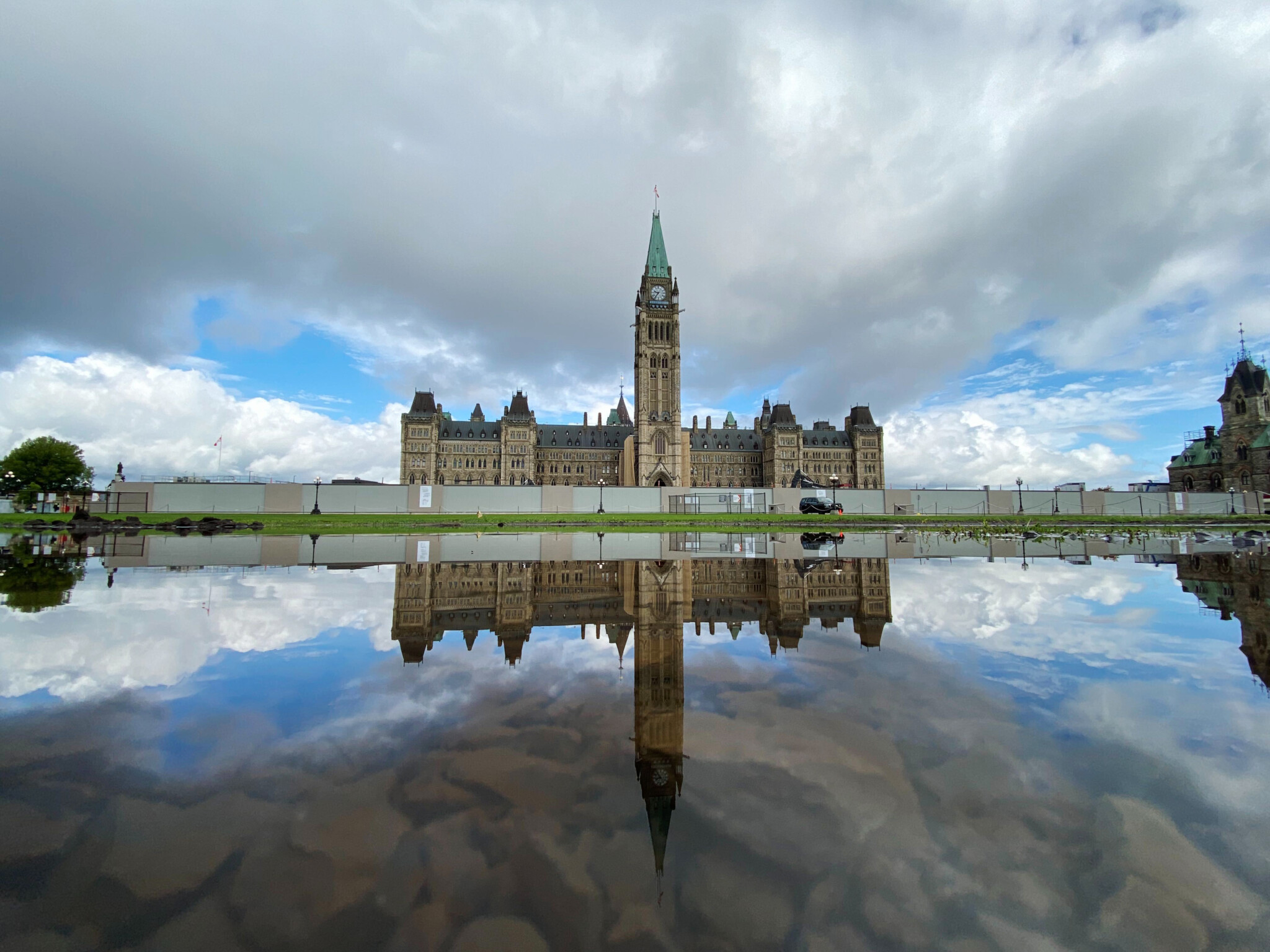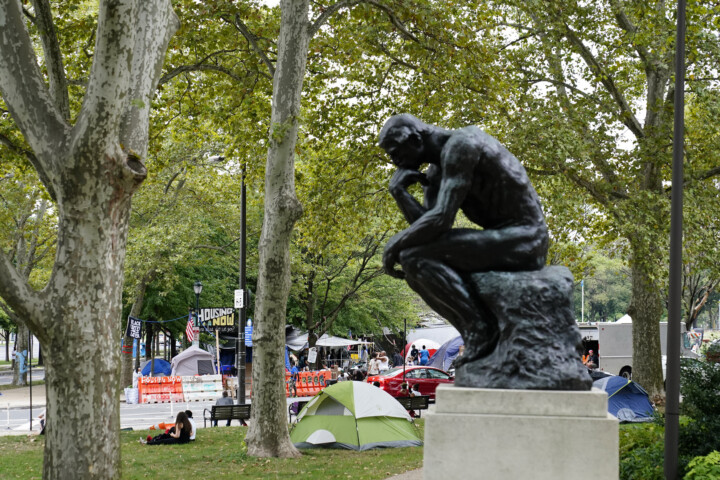“Conservatives used to respect precedent.”
That was the mocking response from Canada’s leading journalist of judicial supremacy, Andrew Coyne, to legal scholars who raised the alarm recently over the Liberal government’s proposal to limit what remains of parliament’s power by inviting the courts to invent new limits of legislatures’ use of the notwithstanding clause. Apparently, the traditional scope of parliamentary sovereignty is one precedent that Coyne is willing to abjure.
The specific post that prompted Coyne’s snark was by a law professor who had suggested creative ways in which parliament might use its constitutional power to legislate alternative approaches to some of the Supreme Court of Canada’s most aggressive and, let’s say, innovative precedents that have tipped law-making power away from parliament to the courts. It is, at the very least, a fun question of jurisprudential theory; in a “break-glass” constitutional crisis, it could be a lifeline.
The precedents in question are a handful of decisions that have expanded the courts’ power beyond what was contemplated, let alone intended, when the constitution was patriated in 1982. They include adopting the German method of “proportionality” review (R v Oakes) and significantly expanding standing rules (Operation Dismantle v R). I would add the use of hypothetical facts conjured by fanciful judges to strike down laws (R v Smith, R v Heywood, R v Nur) to the list.
At the risk of putting too much weight on what was probably, like so much of Coyne’s logorrheic Twitter feed, a moment of knee-jerk petulance, his post provides a useful service. First, it is a misunderstanding of the conservative disposition (as Coyne no doubt knew, but ignored because scoring cheap Twitter points has, alas, become something of an unbecoming habit for him); second, and more interestingly, it gestures at a general confusion in our politics about the relationship between the queer historical anomaly that was liberalism and the conservative attitude.
The first point is quickly dealt with. The precedents that conservatives care about are those socially embedded “prejudices” (Edmund Burke’s word) that guide courts, legislatures, and individuals according to the accumulated wisdom of the ages. The reliance interest generated by these impugned precedents, by contrast, is negligible. In fact, reversing these judicial power grabs would provide greater legal clarity and predictability, as the laws Parliament enacts would, except in rare and extreme cases, no longer remain under a cloud of judicial irresolution until they are litigated.
More broadly, the problem of reconciling the conservative disposition to liberal processes that have proved anything but conservative is at the heart of much of our current political disagreement. Conservatives should want to conserve the social and political arrangements and institutions in their society that provide order, preserve peace, and conduce to the common good. In a flourishing liberal society, then, a conservative will defend liberal arrangements and institutions. I take it that that is what Coyne is doing when he rushes to the defence of the liberal Charter, even after courts have twisted and abused it to serve destructive and sometimes illiberal ends.

A person holds a copy of the Canadian Charter of Rights and Freedoms during a rally on Parliament Hill, Jan. 29, 2022. Justin Tang/The Canadian Press.
As with their treatment of precedent, however, conservatives should maintain the conceptual distinction between the disposition to conserve and the intrinsic value of what is to be conserved. A man who preserves liberal ways of being in a healthy and stable liberal society may be a conservative; if he defends liberalism regardless of the context or conditions, he is merely a liberal. When liberalism has swallowed its tail and is gnawing its way up the body politic to devour its own head, when rules that erode social trust and dissolve social cohesion are forced on the state in the name of liberalism, only a fool would defend that as a matter of blinkered or bloody-minded principle.
Coyne is right that much of liberalism is still worth preserving today, but as a form of government, we should always remember that liberalism is merely a social tool, not an article of faith. It is not “true” in the way holy writ or the natural law are true; it is an instrumental good, only valuable insofar as it produces good social outcomes, which means only so long as it provides a modus vivendi that maintains a healthy social order. When and to the extent it becomes a destabilising force, something else must provide that order.
Liberalism has worked (insofar as it has worked) because it emerged, like Athena from the head of Zeus, from a Christian culture; as long as that culture retained most of its pre-liberal assumptions, liberalism succeeded in bringing social order and intellectual fruits to an increasingly heterogeneous society (while accelerating those differences with its fissiparous logic). So long as it was grounded in a shared (though often unacknowledged) faith in a transcendent order and a moral framework that did not rest on and could not be derived from liberal principles, its stabilising virtues outweighed its divisive vices.
But liberalism’s commitment to radical self-definition chafed at pre-liberal constraints and tolerated no principle of self-limiting restraint. Once liberalism had dissolved most of the familiar pre-liberal bonds of stigma and prejudice that had bound society together below the level of the state, it left our social order hanging by a few thin procedural threads, insufficient to corral and order the millions of mini-sovereigns it had ordained. A doctrine of rebellion is no basis for peace. Even Zeus threatened his favourite daughter when she dared to undermine his higher will and prior authority.
Increasingly, it seems our short liberal century may have been merely a happy but contingent and ultimately unstable equilibrium between the rise of liberalism and the fall of the mostly illiberal precedents it eclipsed. It is sometimes said that we are in a post-liberal age, but like a perimortem patient holding on to life in horror of death, most of us are unwilling to let go so easily. This is our peri-postliberal liberal moment. The sunset behind us leaves us facing a growing darkness, unwilling to go forward, unable to go back. The temptation to cling to the dying day is strong, but most of what we think we see in the final occidental blaze is a mirage.
Both liberals, who hope that by doubling down and fetishising liberal proceduralism we can recover the conservative principles that gave meaning to the late age, and nostalgic conservatives, who think that by denying the fact of the Enlightenment we can undo its effects, are deceived. If anything, liberals are the less deceived, as they can still point to rusted and creaking but still functioning liberal institutions. By contrast, the preliberal social and cultural base is gone, which means a post-liberal society cannot be based on it. If we cannot have liberalism without the world that liberalism consumed, perforce, neither can we reclaim that older world.
Would-be post-liberals who believe that by resurrecting the forms of the old we can revive its cultural substance should remember that nostalgia is a sickness. It was first diagnosed in Swiss mercenaries fighting in the plains of France as “the state of moral decay arising from a forced separation” from their mountain homes. It is a desiderium patriae we feel when we are somewhere we don’t belong. Nostalgic post-liberals are right to feel estranged from the present, but they are wrong to hope we can return to the land of lost content.
The ending of the old order and the failure of a new one to be born have left us in a foreign landscape among strangers, homesick for a country some of us still half-remember from the passed-down histories and legends of our youth. But liberals looking for comfort from the moth-eaten brocade of liberalism and nostalgic conservatives who hope that by tearing it down they will reveal what no longer lies behind it are just futile attempts to recover different ages of lost time—the near and distant pasts—and to wish us back to places we cannot come again.
The way forward cannot be through the past. With few reliable liberal precedents or conservative prejudices remaining to steer by, we must follow what has always been the only reliable guide for good government: discernment of the true and the good according to the natural law; respect for institutions and arrangements that conduce in practice to peace, order, and the common good; and reform of those that don’t.












Comments (2)
Wonderful piece. But why would the discernment of the true and good necessarily exclude past knowledge and practices?